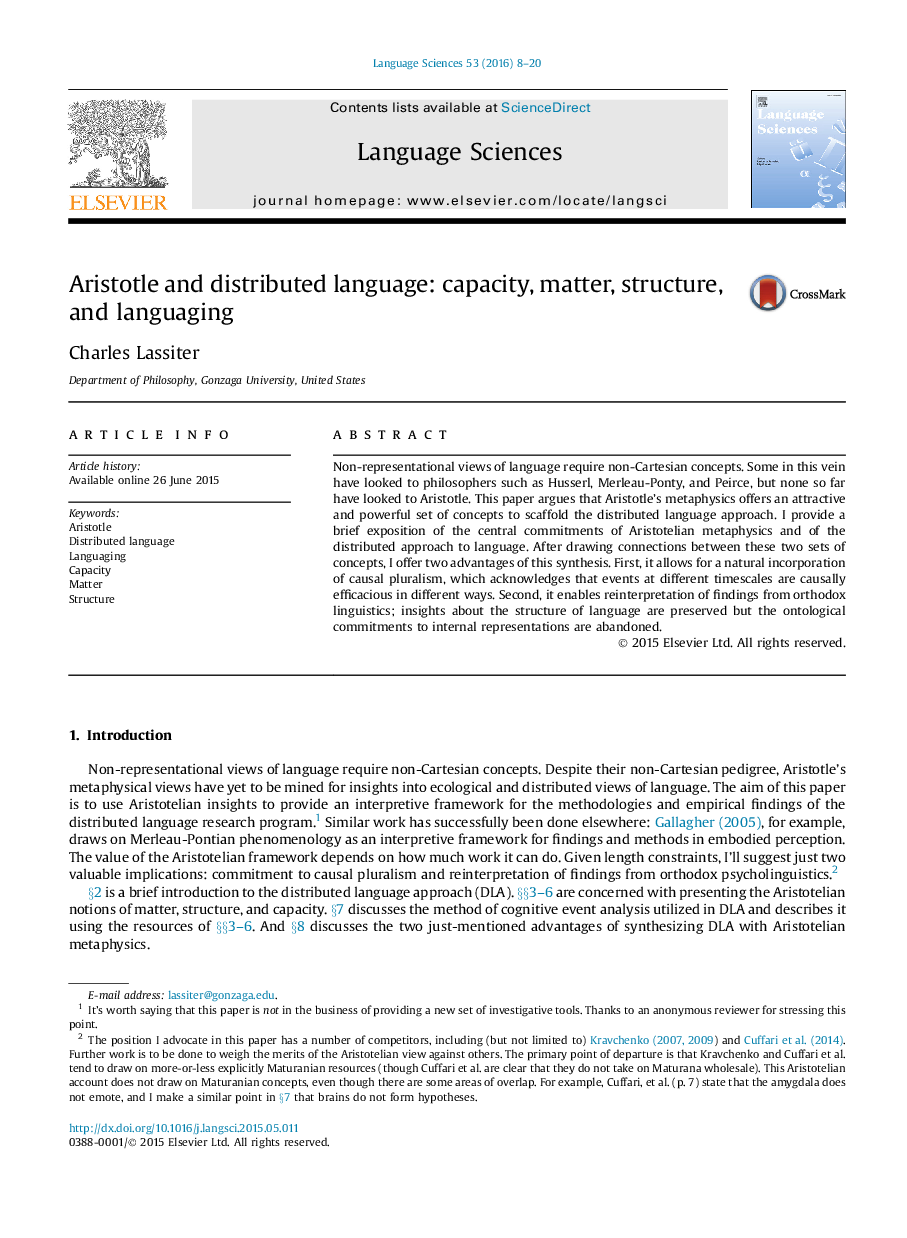| Article ID | Journal | Published Year | Pages | File Type |
|---|---|---|---|---|
| 10520097 | Language Sciences | 2016 | 13 Pages |
Abstract
Non-representational views of language require non-Cartesian concepts. Some in this vein have looked to philosophers such as Husserl, Merleau-Ponty, and Peirce, but none so far have looked to Aristotle. This paper argues that Aristotle's metaphysics offers an attractive and powerful set of concepts to scaffold the distributed language approach. I provide a brief exposition of the central commitments of Aristotelian metaphysics and of the distributed approach to language. After drawing connections between these two sets of concepts, I offer two advantages of this synthesis. First, it allows for a natural incorporation of causal pluralism, which acknowledges that events at different timescales are causally efficacious in different ways. Second, it enables reinterpretation of findings from orthodox linguistics; insights about the structure of language are preserved but the ontological commitments to internal representations are abandoned.
Related Topics
Social Sciences and Humanities
Arts and Humanities
Language and Linguistics
Authors
Charles Lassiter,
